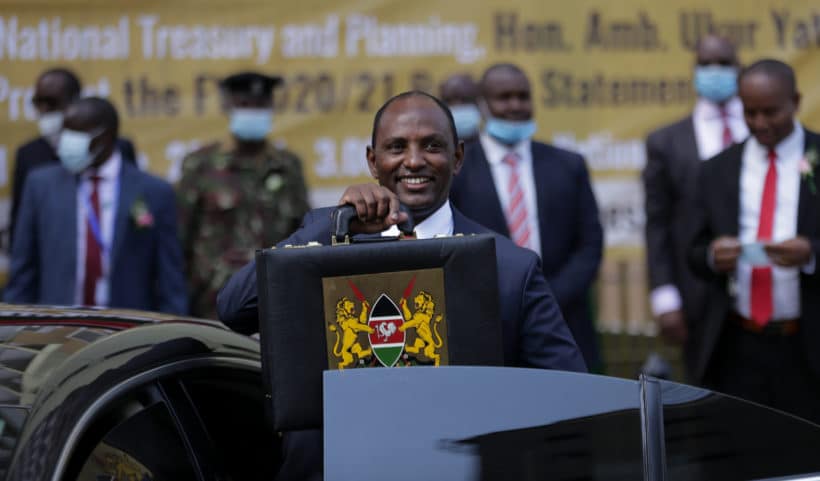
NAIROBI, Sept 9 (Reuters) – Kenya’s economic output contracted for the first time in nearly three decades last year, pummeled by the impact of the coronavirus crisis that hit key sectors like tourism, official data showed on Thursday.
Growth slid to -0.3% last year from 5.0% in 2019, the finance minister said at the release of the annual economic survey. The last time East Africa’s largest economy contracted was in 1992.
“The (coronavirus) containment measures constrained the economy,” Ukur Yatani said while launching the survey, whose release was delayed four months due to the pandemic and a rebasing exercise for calculating output.
Read more: Kenya central bank says has space to cut rates, urges more measures
Annual output as of the end of 2019 went up by 5.3% after the rebasing, the statistics office said, with the year for calculating output being moved to 2016 from 2009.
Economies around the world usually rebase their calculations every 5-10 years to take into account technological changes and other developments. The last rebasing in Kenya was in 2014.
Last year, earnings from tourism slumped 43.9%, Yatani said, while international visitor arrivals dropped by 71.5% on the back of COVID-19 lockdown measures.
Still, Kenya’s economy fared better than the wider Sub-Saharan Africa region, which recorded a 1.9% contraction in output during the same year.
Yatani attributed that better than average performance to robust expansion in the agriculture sector, which benefited from adequate rainfall that spurred production of food crops and tea.
Read more: Kenya’s economy to bounce back this year but still vulnerable -World Bank
The construction sector also defied the pandemic gloom to grow by 11.8%, the data showed.
Overall growth is expected to rebound to more than 6% this year, Yatani said, as the impact of the crisis starts to ease.
But higher oil prices could curb the growth momentum, Yatani warned, saying that some inflationary pressure is expected to persist well into the second half of this year.
The emergence of new worrying variants of the coronavirus, like the especially contagious Delta, and shortages of vaccines were also casting a shadow on the outlook, the minister said.
“We are not yet out of the woods,” said Yatani.
(Reporting by Duncan Miriri Editing by Mark Heinrich)

